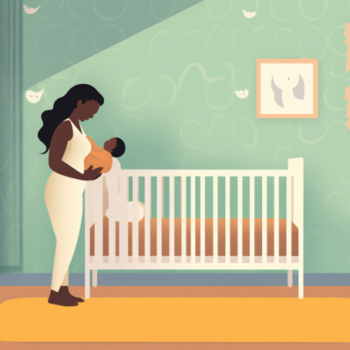If you're a new parent, preventing SIDS (Sudden Infant Death Syndrome) is likely one of your top concerns. While there is no foolproof way to prevent SIDS, there are several steps you can take to reduce the risk. First and foremost, ensure that your newborn sleeps on their back, as this is the safest sleep position. Keep the crib clear of any loose bedding, pillows, or stuffed animals that could pose a suffocation hazard. Additionally, maintain a smoke-free environment both during pregnancy and after birth, as exposure to smoke increases the risk of SIDS. It's also important to breastfeed your baby if possible, as breastfeeding has been found to provide some protection against SIDS. Lastly, keep your baby's sleeping area in the same room as yours for at least the first six months. By following these guidelines, you can help create a safe sleep environment for your newborn and reduce the risk of SIDS.
Tag: back to sleep
When Should a Newborn Begin Rolling Over? A Guide for Parents.
As a new parent, it's common to wonder when your little one will reach their developmental milestones. One of the most exciting moments is when your newborn starts to roll over. But at what age can you expect this to happen? While every baby is different, most infants start rolling over between four and six months old. It's important to remember that some babies may reach this milestone earlier or later than others. As always, it's important to encourage your baby's development by spending plenty of time playing and interacting with them. Keep an eye on your little one's progress, but don't worry too much if they're not rolling over at the exact same time as their playmates. Every baby moves at their own pace!
The Risks of Newborns Sleeping on Their Stomach: Safety Precautions and Guidelines
As a new parent, one of the most common questions you may have is whether it is safe for your newborn to sleep on their stomach. While stomach sleeping may seem comfortable for babies, it is not recommended due to the risk of sudden infant death syndrome (SIDS). The American Academy of Pediatrics recommends placing babies on their backs to sleep until they are at least one year old. This reduces the risk of SIDS by up to 50%. It is essential to ensure that your baby's sleep environment is safe, including using a firm mattress and avoiding loose bedding, soft toys, or other objects that could obstruct their breathing. Always consult with your pediatrician if you have any concerns about your baby's sleeping habits.

